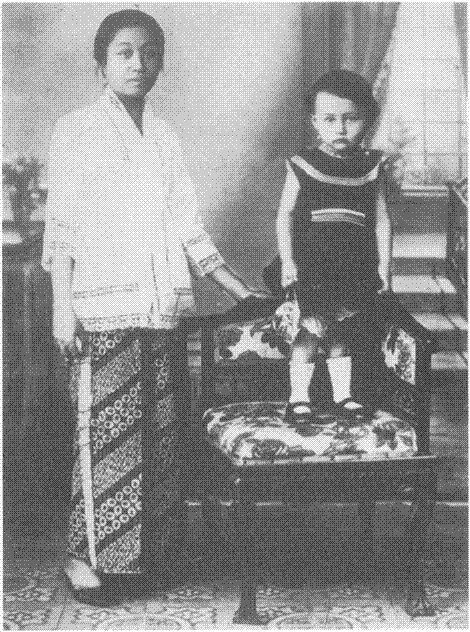pecially and increasingly during the first half of the twentieth century, Dutch and Indonesian women, despite their shared aspirations, were kept apart by their diverging interests and by the colonial conditions of Dutch East Indies society. Her book offers a wealth of new data and archival materials, and many interesting illustrations and maps. There is a helpful glossary of Dutch and Indonesian terms, and a good five-part index (of names, geography, population groups, institutions and subjects) which, however, only covers the main text of the book and not the very extensive notes and the 20-page bibliography at the end.
In the six essays collected here Locher-Scholten discusses a number of key aspects of the struggle for racial and sexual emancipation and equality under colonial conditions. Her perspective is informed both by feminist theory and by the post-colonial views of Edward Said. As she puts it: ‘Writing about gender in a colonial context reveals the iniquities and inequalities of the colonial system at its most uncompromising.’
After a general introduction on ‘Gender, Modernity and the Colonial State’, Chapter 2 discusses the colonial debate about female labour in the 1920s, in which European notions clashed with Indonesian practices. The analysis is supported with important statistical data on Indonesian women, their professions, wages and work, both in indigenous agriculture and on the large colonial plantations in Java. Chapter 3, on the representation of Javanese domestic servants, sets out how instruction manuals and colonial children's literature defined the role of the Dutch woman as that of a wise but firm teacher of her servants. Chapter 4, on the western lifestyle of European women, documents how ‘an illusionary Netherlands in the tropics’ was constructed and promoted through western models for women's clothing, food and manners.
The last two chapters are, to my mind, the most innovative. Chapter 5, on the struggle for women's suffrage in the colonies, reveals how European women carried their ‘white woman's burden’ and considered themselves part and parcel of the Dutch colonial project; how they fought for their own voting rights, and kept a safe distance from the Indonesian women's movement. The final chapter makes an important contribution to the history of the women's struggle in Indonesia in the colonial era by describing the fierce verbal battles and political demonstrations of 1937, when the colonial government attempted to regulate family life through a new ordinance on marriage. The debate focused - and foundered - on the conflicting views of marriage and monogamy of the colonial government, of the Indonesian women's movement, and of the Islamic religious leaders who scored a memorable victory here.
What emerges from these essays is a detailed picture of the cultural battles that went on in the colonies - over marriage, manners and morality, over relations, intimacy and sexual affairs just as much as over work, education, democracy and the law. Again and again we see Western ideals and conceptions of womanhood in

Djemini, a Javan woman married to the Dutch nco Piet Scholte, and her daughter Helena (‘Lin’), who later became a writer. Early 20th century.
conflict with Indonesian views and colonial realities. And with hindsight, we can see striking and unsettling parallels between the suppression in the thirties of Indonesian nationalists, and the tightening of regulations for women, European as well as native. It is a parallel hinted at in Hella Haasse's novella
Forever a Stranger (Oeroeg, 1948), where she describes how the Dutchwoman Lida sides with the young Indonesian nationalist Oeroeg against the Dutch colonial establishment.
Back in the thirties, however, ‘female solidarity across the colonial divide did not exist’. For this reason alone, it would be extremely interesting to try and continue Locher-Scholten's history of women's struggle in the Indonesian archipelago up to the present. This would cast an interesting light on the ongoing exploitation of Indonesian women in the sweatshops that produce cheap commodities for global companies. It would also, finally, bring out the common ground between the Dutch historian Locher-Scholten and the Indonesian feminist, poet and philosopher Toety Herati Nurhadi, who - together with her fellow feminist activists - was arrested under the Suharto regime simply for daring to hand out milk to the poor in Jakarta.
reinier salverda